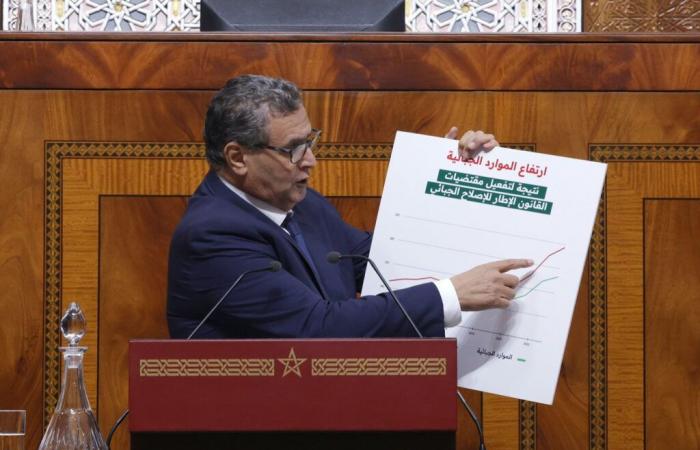
Badr Tadlaoui
|
20:25 – December 26, 2024
The Akwa group, led by head of government Aziz Akhannouch, continues to extend its dominant position in Morocco’s strategic sectors. Afriquia SMDC-Afriquia Gaz, its flagship subsidiary, recently won a contract worth 2.4 billion dirhams (MAD), relating to the supply and delivery of standard and special fuel oil to the various sites of the National Office electricity and drinking water (ONEE). This contract, awarded following a call for tenders launched on December 5, has been the subject of intense criticism, not only because of its considerable amount but also the political and economic issues it raises.
The contract was awarded to Afriquia Gaz after it beat its only competitor, Atlas Sahara, a subsidiary of Derhem Holding. The latter, despite an offer of 3.97 billion dirhams, failed to win the competitive bidding procedure. This market, which has gone almost unnoticed, does not fail to revive criticism of the omnipresence of companies linked to Aziz Akhannouch in public markets. The recent award of this contract comes after the controversy linked to another major project awarded to its companies, namely the construction of the seawater desalination station in Casablanca. This project, which should become the largest of its kind in Africa, is also being carried out in consortium with the Spanish company Acciona, on behalf of ONEE. The nature of these contracts raises questions regarding the separation between public and private interests and fuels criticism from political opponents, notably the Justice and Development Party (PJD) and the Progress and Socialism Party (PPS), which denounce excessive concentration of public markets in the hands of the same group.
Behind these challenges lies a broader question about the transparency of public procurement award procedures and the regulation of the private sector in Morocco. If the government of Aziz Akhannouch affirms that these projects are essential for the economic development and the infrastructure of the country, the opposition sees in these contracts an opaque management, where personal and political links seem to play a determining role in the distribution of public contracts.
Despite accusations of favoritism, the Akwa group and its subsidiaries continue to accumulate gigantic contracts in strategic sectors, strengthening their economic and political weight. The stakes are high: Aziz Akhannouch tarnishes the credibility of the reforms he defends. The energy sector, central to Morocco, seems to be transforming into a battleground for concerns that go beyond simple questions of natural resource management and public contracts.





